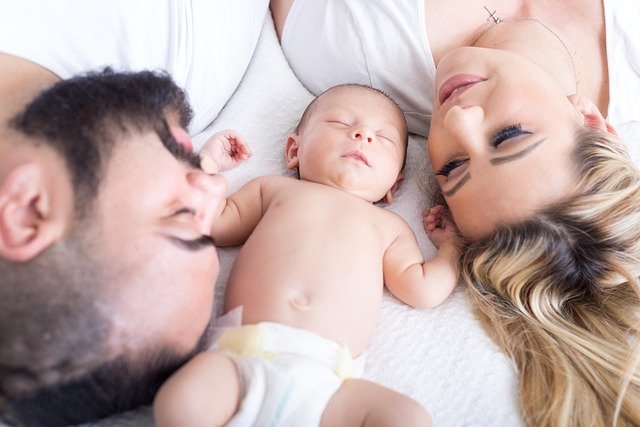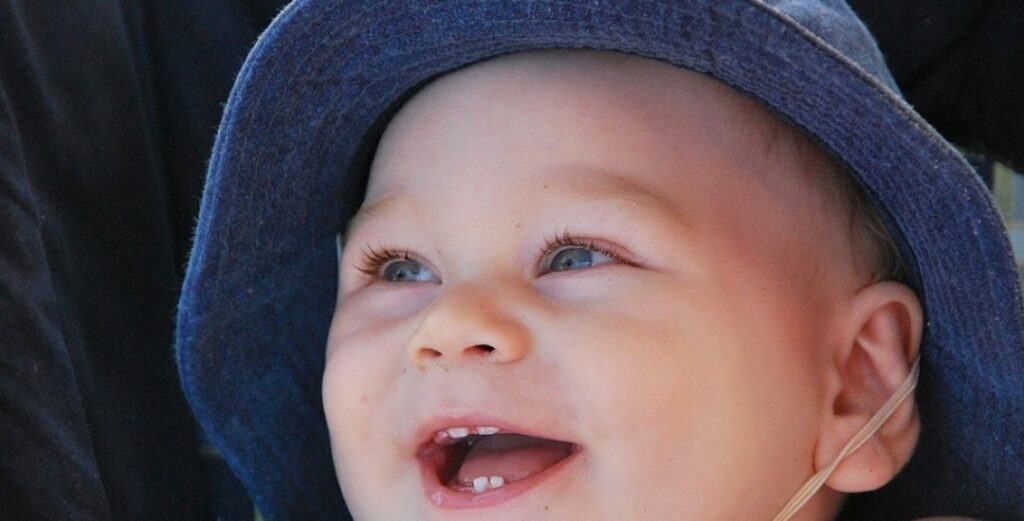
Welcoming your little ray of sunshine into your family is one of life’s greatest joys. Over the first year of your baby’s life, you will document a lot of major moments – many magical “firsts”. From their first steps to their first words, graduating slowly from their ‘goo-goos’ and ‘ga-gas’. From their first Christmas to their first tooth. Year one of your baby’s life will have you marking many milestones.

However, as many parents would agree the youngest years of your baby’s life will also be filled with many tears. Babies cry and fuss all the time, so what? If you’ve noticed that your darling bundle of joy is fussier than normal, the culprit may be baby teeth. Teething can often cause your baby to act cranky and drool all over the place.
A teething baby can be a challenge for new parents. If your kid celebrated their first birthday with only one tiny tooth, or if tot hasn’t sprouted any, you might be wondering if their teeth are coming in on the right track. Here’s what you need to look out for.
The baby teeth transition
It may be a surprise to you but baby teeth actually form way before the baby is born. This means that at birth, your baby will have all of their 20 baby teeth under the gums, waiting for their time to come out and shine. Although there are no firm and fast dates on when baby teeth come in, they usually start to erupt by 6 to 12 months of age.
Nevertheless, it is helpful to have a general overview of typical teething patterns so you know what to look forward to. Let’s take a look at the growing path of a baby’s first wave of teeth:
1. Incisors
It may be a surprise to you but baby teeth actually form way before the baby is born. This means that at birth, your baby will have all of their 20 baby teeth under the gums, waiting for their time to come out and shine. Although there are no firm and fast dates on when baby teeth come in, they usually start to erupt by 6 to 12 months of age.
- 6 to 10 months old: The lower central incisors (bottom front teeth) come in
- 8 to 12 months old: The upper central incisors (upper front teeth) are next to show
- 9 to 13 months old: The upper lateral incisors (on either side of front teeth) reveal themselves
- 10 to 16 months old: The lower lateral incisors (on either side of front teeth) finally appear
2. First molars
The molar teeth are large, flat teeth at the back of the mouth, primarily used to grind food during chewing. Since these are bigger teeth, your child may, once again, experience a bout of teething pain at this time. These teeth help your little one chew a wider variety of foods and develop chewing skills.
- 13 to 19 months old: The first upper molars begin to arrive
- 14 to 18 months old: The lower first molars appear
3. Cuspids
Fitting snugly in between the first molars and the incisors are the cuspids, also known as the canines. These teeth have a strong and pointed shape to them that allows your child to grip food and break it apart more easily.
- 16 to 22 months old: The upper two canines make their way between the incisors and the first molars
- 17 to 23 months old: The two lower canines appear
4. Second Molars
By the age of three, most children have a full set of baby teeth to complete their bright smiles!
- 23 to 31 months old: The second pair of lower molars start erupting
- 25 to 33 months old: The upper second molars come in
Baby teeth and child’s health
Baby teeth are extremely important as they help a child eat and chew properly. They also play a critical role in your child’s health as they act as placeholders for the permanent teeth and are basically the foundation in developing muscles in the jaw.
The American Dental Association recommends parents to take their kids in for their first dental examination by their first birthday or when their first tooth comes in. Oral hygiene should begin even before your kid flaunts their first tooth. Clean their gums with a soft washcloth and as soon as their teeth come in, gently brush their teeth twice a day with a fluoridated toothpaste!
Parenting is difficult but among the myriad of other parenting responsibilities, make sure you take time out for their oral hygiene! If you are looking to book your child’s first appointment with a dentist, contact 4Smile!




